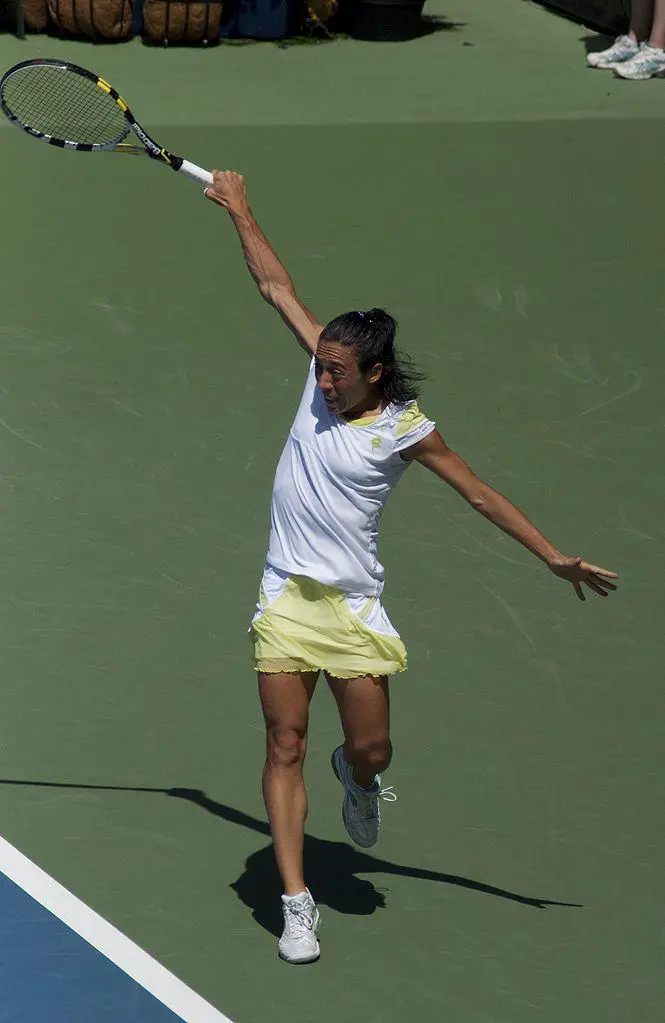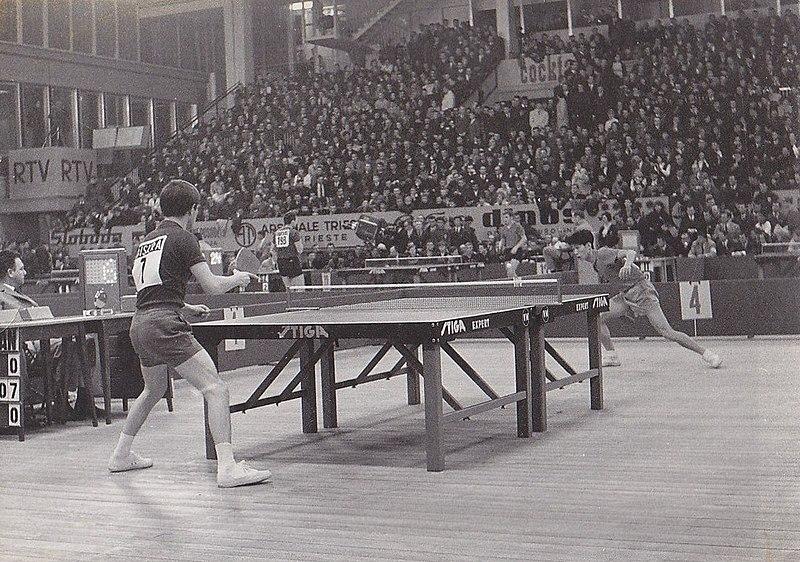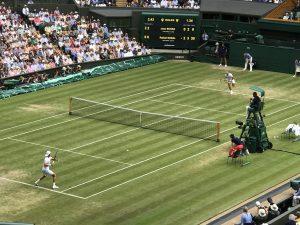We may earn money or products from the companies mentioned in this post.
Brief explanation of tennis and its popularity

Tennis, often referred to as the “sport of kings,” is a captivating game that has enthralled audiences around the world for centuries Combining athleticism, skill, and strategy, it offers a unique blend of physicality and mental prowess The origins of tennis can be traced back to medieval times when it was played in various forms However, the modern version we know today evolved in England during the late 19th century
What sets tennis apart from other sports is its global appeal It transcends borders and cultures, attracting players and fans from all walks of life From prestigious Grand Slam tournaments like Wimbledon and the Australian Open to local club matches, tennis provides thrilling entertainment at every level
Importance of understanding tennis terminology

Like any sport, tennis has its own set of unique terminologies that may seem daunting to newcomers However, understanding these terms is crucial for both players and spectators alike
Firstly, familiarizing yourself with tennis terminology enhances your enjoyment of the game Whether you’re watching a match on television or cheering for your favorite player courtside, knowing what terms like “ace,” “deuce,” or “love” mean adds depth to your experience It allows you to follow the action more closely and appreciate the intricacies of each point
Secondly, learning tennis terminology helps improve your own game if you’re a player Tennis relies heavily on communication between teammates or opponents during doubles matches or coaching sessions By being well-versed in the language used on court – words such as “slice,” “drop shot,” or “lob” – you can effectively communicate strategies and tactics with your partner or coach
In conclusion, tennis’s enduring popularity stems from its ability to captivate audiences worldwide Understanding the terminology of this beloved sport not only enhances your enjoyment as a spectator but also elevates your game as a player So, dive into the world of tennis and discover the thrill and beauty of this remarkable sport
What is WC in Tennis?

Tennis tournaments are known for their thrilling matches, intense rivalries, and unpredictable outcomes One element that adds an extra layer of excitement to these events is the concept of Wild Cards (WC). But what exactly does WC mean in tennis?
Definition: Wild Card (WC) in tennis
A Wild Card refers to a special invitation given to a player or team to participate in a tournament, bypassing the usual qualification process It grants them direct entry into the main draw without having to go through qualifying rounds
How does it differ from direct entry or qualifying rounds?
In tennis tournaments, players usually earn their place in the main draw based on their ranking and performance Direct entry is awarded to those who have obtained enough ranking points, while others may need to compete in qualifying rounds for a chance to enter the main draw
However, wild cards serve as exceptions to this system They provide opportunities for various individuals who might not meet the standard criteria but still have potential or value that organizers want to highlight
Purpose and function of wild cards in tennis tournaments
1 Providing opportunities for local players/young talents/promising athletes
One of the primary functions of wild cards is to give local players a chance to showcase their skills on a bigger stage These invitations allow them to compete against higher-ranked opponents and gain valuable experience that can propel their careers forward Additionally, young talents or promising athletes who haven’t yet earned enough ranking points can also benefit from wild cards as they get an opportunity to prove themselves among established professionals
2 Attracting star players who have not earned enough ranking points or those returning from injuries or long breaks
Wild cards also play a crucial role in luring star players who might not have earned sufficient ranking points to qualify directly for a tournament This inclusion ensures the presence of top-tier athletes, enhancing the competitiveness and excitement of the event Furthermore, wild cards are sometimes granted to players who are returning from injuries or long breaks, offering them a chance to regain their form and reestablish themselves in the tennis world
Criteria for Awarding Wild Cards

When it comes to awarding wild cards in tennis tournaments, there are several criteria that come into play These wild cards provide players with an opportunity to compete in high-profile events and showcase their skills on the big stage Let’s take a closer look at the factors that tournament organizers and governing bodies consider when granting these prized entries
Types of Tournaments That Award Wild Cards
Wild cards are typically awarded in various types of tournaments, ranging from prestigious Grand Slam events like Wimbledon and the US Open to ATP/WTA tour events and even Challenger series Each tournament has its own set of rules and regulations regarding the allocation of wild cards
Factors Considered When Granting a Wild Card Entry to a Player
-
Player’s Past Performance and Potential for Success:
One crucial factor is a player’s past performance and their potential to make an impact in the tournament Tournament organizers assess a player’s previous results, ranking, and overall skill level to determine whether they deserve a wild card entry -
Player’s Marketability/Popularity/Drawing Power:
Tennis is not just about skills; it’s also about marketability Organizers take into account a player’s market appeal, popularity among fans, and ability to draw crowds when considering wild card selections After all, tournaments strive to attract spectators and generate excitement around matches -
Nationality and Regional Appeal:
In some cases, nationality can play a role in awarding wild cards Tournaments may give preference to local or national players who have the potential to garner support from home crowds or generate regional interest -
Tournament Organizer’s Discretion:
Ultimately, the decision to grant a wild card entry rests with the tournament organizer While certain criteria are taken into consideration, organizers have the final say and may use their discretion to award wild cards to players they believe will enhance the overall competitiveness and appeal of the event
The Role of Governing Bodies in Distributing Wild Cards
Governing bodies like the ATP (Association of Tennis Professionals), WTA (Women’s Tennis Association), and ITF (International Tennis Federation) also play a role in distributing wild cards These organizations collaborate with tournament organizers to ensure fairness and maintain consistency across different events They establish guidelines and policies for granting wild cards, ensuring that players receive opportunities based on merit and other relevant factors
In conclusion, when awarding wild cards in tennis tournaments, player performance, marketability, nationality, regional appeal, and tournament organizer discretion all come into play These factors combine to create an intriguing mix of talent and excitement as players vie for their chance to shine on the grand stage
Famous examples and controversies surrounding wild card entries

Wild card entries in sports tournaments have always been a subject of fascination and debate While some players have made the most of this opportunity, showcasing their talent and winning titles, others have faced criticism for receiving wild cards due to various reasons Let’s take a closer look at some famous examples and controversies surrounding wild card entries
Success stories: Wild card players who’ve made significant impact or won titles
1 Goran Ivanišević at Wimbledon (2001): One of the most memorable wild card success stories in tennis history is that of Goran Ivanišević The Croatian player, ranked 125th at the time, was awarded a wild card entry into Wimbledon after being sidelined by injuries Against all odds, Ivanišević went on an incredible run, defeating top-ranked players and ultimately clinching the championship title
2 Kim Clijsters at US Open (2009): Another remarkable success story comes from the world of women’s tennis After taking a break from professional tennis to start a family, Kim Clijsters received a wild card invitation to compete in the US Open in 2009 To everyone’s surprise, Clijsters not only reached the final but also triumphed over Caroline Wozniacki to claim her second US Open title
Controversial picks: Players who received criticism for being awarded a wild card
1 Maria Sharapova after doping suspension: One controversial decision regarding a wild card entry involved Maria Sharapova following her suspension for doping violations in 2016 Despite facing backlash from fellow players and fans, tournament organizers granted her several wild cards upon her return to competitive tennis This decision sparked debates about fair play and whether athletes with a tarnished record should be given special privileges
2 Bernard Tomic with disciplinary issues: Australian tennis player Bernard Tomic has often found himself in the midst of controversies due to his behavior and disciplinary issues Despite facing criticism for his lack of commitment and professionalism, Tomic has been awarded wild cards for various tournaments over the years Such decisions have raised questions about whether talent alone should be sufficient to warrant a wild card entry
Wild Card Playoffs: An alternative method to allocate wildcard spots
In recent years, some sports organizations have introduced wild card playoffs as an alternative method to allocate wildcard spots These playoffs involve inviting a select group of players who compete against each other for the coveted wild card entries This approach ensures that deserving players earn their spot through fair competition rather than relying solely on subjective decisions made by tournament organizers
Overall, wild card entries continue to generate intrigue and controversy in the world of sports While success stories of players making the most of their opportunities inspire us, controversies surrounding certain selections fuel discussions about fairness and meritocracy within competitive sports
Useful Links

WC Tennis Serving
Wheelchair tennis
US Open Men’s Singles Draw – Official Site of the 2023 US …
Tennis WC Tee
adidas Men’s Tennis WC Shorts, Black, Large
WC to host tennis tryouts on Monday and Tuesday
STICKER TENNIS WC CATA | Western Carolina Univ Bookstore
Gijon | Results | ATP Tour | Tennis
Vaillant follows tennis career to WC
WC tennis finishes 15th at nationals | Sports
adidas Women’s Tennis WC Dress
ADIDAS TENNIS WC SHORTS
What Does Wc And Q Mean In Tennis?
Draw | Dallas Open | Tennis
Facility Schedules
209 Wc Tennis Images, Stock Photos & Vectors
wc ∙ summer 2023 ∙ youth tennis






